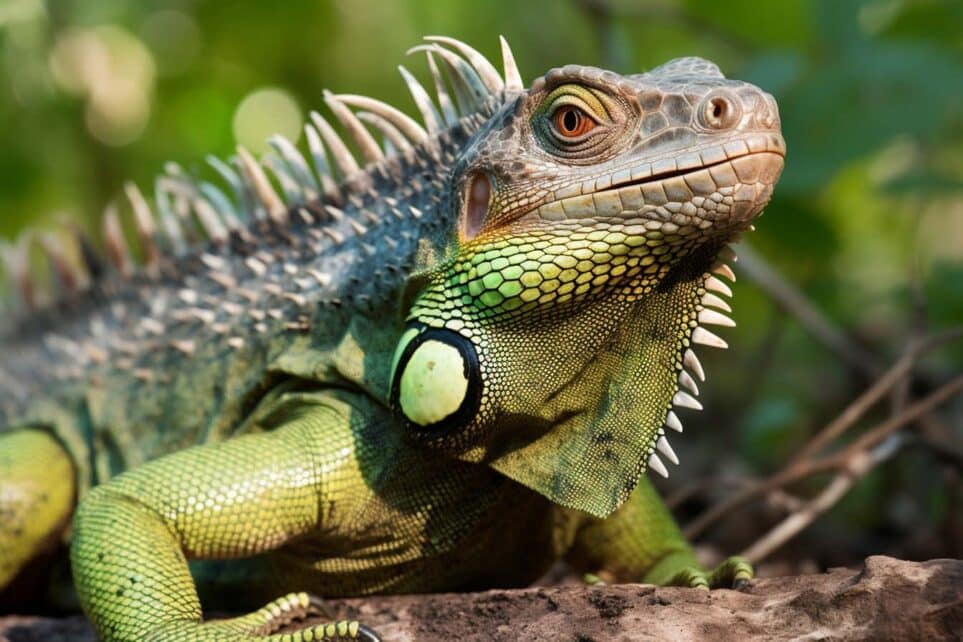Florida is home to many reptiles, but one of the most iconic is the iguana. These large, colorful lizards can be found throughout the state, from urban areas to natural habitats. If you’re interested in learning more about these fascinating creatures, the first step is to know how to identify them. In this article, we’ll provide a guide to recognizing Florida iguanas.
Size and Appearance
The first thing to know about iguana identification is that these reptiles are giant. They can grow up to 6 feet long, including their tail, and weigh over 20 pounds. When fully grown, male iguanas are typically larger than females and have more prominent jowls.
Florida iguanas come in various colors, but the most common is green. This shade can vary from a bright lime green to a darker, muted green. Some iguanas may also have stripes or spots on their bodies.
Body Shape and Features
One of the critical features of iguanas is their distinctive body shape. They have long, slender bodies that are covered in scales. These scales can be pretty rough to the touch and may feel like sandpaper.
Iguanas have long, powerful tail that makes up a significant portion of their overall length. Their legs are long and slender, with sharp claws well-suited to climbing trees and other surfaces.
Another essential feature of iguanas is their dewlap. This is a flap of skin that hangs from their necks and can be inflated or deflated as a form of communication.
Habitat and Behavior
Florida iguanas can be found in various habitats, from urban areas to forests and wetlands. They are cold-blooded, so they rely on external heat sources to regulate their body temperature. As a result, they can often be seen sunning themselves on rocks, walls, and other surfaces.
Iguanas are herbivores and eat a diet of leaves, flowers, fruits, and other vegetation. They are also excellent climbers and can often be found in trees or on rooftops.
Conclusion
In conclusion, identifying Florida iguanas requires understanding their size, appearance, body shape, and behavior. By familiarizing yourself with these features, you can learn to recognize these fascinating reptiles in their natural habitats. However, it’s important to remember that iguanas are wild animals and should be treated with caution and respect. Suppose you have an iguana problem in your yard or home. In that case, it’s important to contact a licensed wildlife removal service provider, such as Wildlife Removal Services of Florida (phone: 561-212-9255), to handle the situation safely and humanely.

